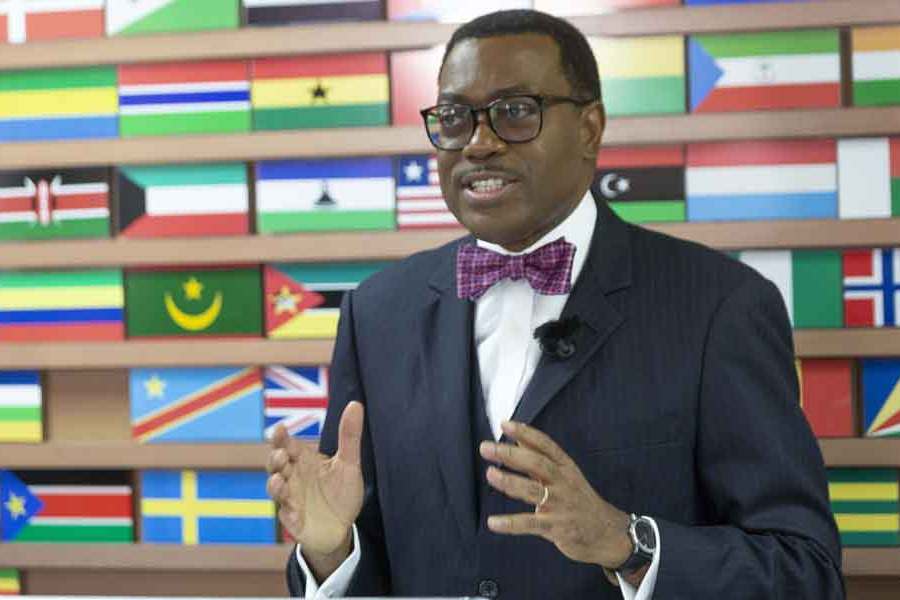By Adeyemi Adekunle
The Africa Pavilion has emerged as a symbol of African unity and innovation at the UN COP29 climate summit, where world leaders, environmental advocates, and policy experts convened to tackle the pressing climate crisis. With its striking architecture and vibrant atmosphere, the Pavilion drew significant attention as it hosted a series of high-level discussions aimed at advancing sustainable climate solutions for the continent.
The Pavilion was made possible through a strategic collaboration with the African Development Bank Group (AfDB), a prominent multilateral development finance institution that cemented its leadership and commitment to Africa’s sustainable future.
Dr. Akinwumi Adesina, the Bank’s resilient president, was represented at the event by Prof. Anthony Nyong, the Director of Climate Change and Green Growth. Nyong captivated attendees during the several panel discussions focused on Africa’s role in global climate solutions.
Highlighting the importance of international cooperation, a pivotal bilateral meeting took place between representatives of the AfDB and the Government of the Netherlands, led by Dr. Afke van Rijn, the Director General for Environment and International Affairs.
The discussions centered on leveraging climate finance to support Africa’s green growth initiatives, showcasing the vital partnership between the AfDB and European nations in addressing climate change.
“Our focus today is on actionable solutions,” declared Prof. Nyong during the opening of the “African Green and Inclusive Future” event. With an emphasis on integrating climate and biodiversity within the AfDB’s ten-year strategy, discussions explored innovative pathways to not only combat climate change but also ensure it uplifts marginalized communities across the continent.
The Pavilion also spotlighted the Continental African Water Investment Programme, which launched the AU-AIP Green Climate Fund Multi-country Readiness Project. A collaborative effort led by the African Union, Green Climate Fund, and Global Water Partnership, this initiative aims to increase financial readiness for water-related climate projects, safeguarding valuable water resources in a continent that faces increasing droughts and flooding.
A pivotal moment came with the high-level dialogue titled “Consolidating Strategic Partnerships for Climate Resilience and Equitable Finance for Africa’s Small Island Developing States (SIDS).” This focused on the unique challenges faced by SIDS in Africa and how collaborative financing can bolster climate resilience. Co-hosted by the Economic Commission for Africa, Indian Ocean Commission, and Ideas For a Prosperous Africa, this dialogue reinforced the need for tailored approaches to support vulnerable communities.
The discussions further on “Aquatic Food for Climate Resilient Blue Economy” merged the themes of sustainable food production and economic growth within the context of climate resilience.
This event was organized by the African Union, Food and Agriculture Organisation, and Earfish/Afrifish-net, highlighting the critical intersection of biodiversity, food security, and sustainable livelihoods.
A standout session at the Pavilion was dedicated to an essential yet underexplored topic—the potential of global carbon markets in benefiting African nations. Titled “Are Global Carbon Markets Ready to Take Off, and What Does It Mean for Africa?”, this dialogue brought together experts and consultants from Island Carbon Consult, SECDEX Group, and Zero 13 to discuss strategies for engaging African countries in the emerging carbon market landscape.
“The future of Africa’s economies lies in our ability to harness and monetize our ecological assets,” said one of the panelists during the carbon market session.
As more governmental and non-governmental stakeholders recognize the potential of carbon markets, the need for robust frameworks that facilitate Africa’s participation in these markets becomes increasingly urgent.
The impressive collaboration among various organizations at the Pavilion, including the African Union Commission, African Union Development Agency, and Economic Commission for Africa, underscores the necessity of unity in the face of climate challenges.
Their collective efforts aim not just at putting Africa on the global climate agenda but also at ensuring that the continent’s voice reverberates through the corridors of international decision-making.
By showcasing Africa’s innovative solutions and collaborative spirit, the Africa Pavilion at COP29 served as a beacon of hope and resilience. As nations continue to grapple with unprecedented climate challenges, this forum highlighted the continent’s commitment to sustainable development and the critical need for global solidarity.
As the summit progresses, the dialogues held at the Pavilion will echo beyond the conference walls, forming the cornerstone for future initiatives and partnerships aimed at building a greener, more sustainable Africa for generations to come. The eyes of the world were indeed on the African Pavilion, where a powerful narrative of unity and action for climate solutions was forged.




